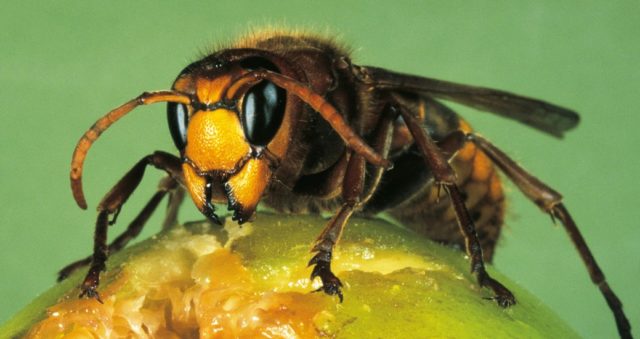The State Phytosanitary Service asked the population to alert about the presence in the country of the Asian giant hornet also known as the “killer hornet” since it represents a danger to the beekeeping and agricultural sector, even humans.
Authorities acknowledged that the hornet represents a risk because it attacks bees and other insects, as well as crops, posing a great risk. Additionally, they recognize that hornets could threaten people’s health.

“In case of detection of any colony, it should be reported immediately and avoid removing it, driving it away or applying an insecticide. It is also important to alert those who could be exposed to this threat that the venom of this insect has a level of greater toxicity than that of bees and wasps in our country and that protective clothing is not sufficient due to the size of this species”, indicated the State Phytosanitary Service.
To report it, you can do it in the following way:
•Telephone; 2587-1600
•Email; [email protected]
•Face-to-face; at regional offices of MAG or Senasa
They are unmistakable!
The Department of Agriculture of the State of Washington, United States, reported on the presence of the insect in the North American country. “They are unmistakable”, said Susan Cobey, a bee breeder at the WSU Department of Entomology in an April statement. “They are like something out of a monster cartoon”, reported BBC World.
Its main prey is bees, which they decapitate to bring food to their young. “Hornets can destroy a honeycomb in a matter of hours”, says BBC World in its report. Bees are basically essential for the pollination of plants, which in turn allow food for humans.
Regarding the risks to people, the United States Department of Agriculture acknowledged that multiple stings from the Killer Hornet can “trigger organ failure and cause death in rare cases, given the toxic nature of the venom and the fact that they can sting repeatedly”, she told BBC World.

